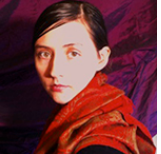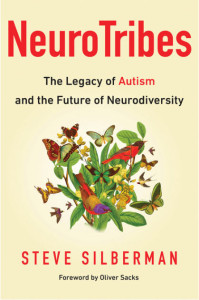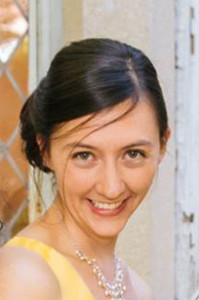 Even as a child, Junia Howell dreamed of new policies that would increase the economic vitality of her impoverished urban neighborhood. Yet, occupations that evaluate and create policies require ample amounts of reading and writing—a challenge for Howell who is severely dyslexic. However, with the support of accessible online libraries like Bookshare, which is free to all U.S. students with qualifying print disabilities, Howell is now pursuing her passion as a Sociology PhD candidate at Rice University in Houston, Texas.
Even as a child, Junia Howell dreamed of new policies that would increase the economic vitality of her impoverished urban neighborhood. Yet, occupations that evaluate and create policies require ample amounts of reading and writing—a challenge for Howell who is severely dyslexic. However, with the support of accessible online libraries like Bookshare, which is free to all U.S. students with qualifying print disabilities, Howell is now pursuing her passion as a Sociology PhD candidate at Rice University in Houston, Texas.
“Audiobooks have been an essential part of my academic access,” says Howell. “In primary school, I would wait by the mail in anticipation of the Library of Congress’ green boxes containing my books on cassette tape. When I got older, I used Reading for the Blind and Dyslexic (now Learning Ally) because of their larger selection.” In 2006, Howell was awarded a Marion Huber Learning Through Listening® scholarship from RFBD. She continues to be grateful. “Without them, I never would have made it this far.”
 As Howell advanced in her studies, classroom materials became more difficult for her to find. She began scanning books and would stand for hours listening to one book while scanning several more. At this time, she learned about Bookshare. “I began to tap into the online accessible library for my research and for materials I use in the classes I teach,” she explains. “I’m amazed at the increasing number of titles I can download and read on my computer using Kurzweil 3000. I continue to find books I’ve wanted to read for a long time but haven’t had time to scan. Now I know what ‘normal’ readers feel like—making decisions about what to read based solely on the book and not the level of accessibility. It is a relief to know that I can access almost any title.”
As Howell advanced in her studies, classroom materials became more difficult for her to find. She began scanning books and would stand for hours listening to one book while scanning several more. At this time, she learned about Bookshare. “I began to tap into the online accessible library for my research and for materials I use in the classes I teach,” she explains. “I’m amazed at the increasing number of titles I can download and read on my computer using Kurzweil 3000. I continue to find books I’ve wanted to read for a long time but haven’t had time to scan. Now I know what ‘normal’ readers feel like—making decisions about what to read based solely on the book and not the level of accessibility. It is a relief to know that I can access almost any title.”
Howell notes, “I love hearing about new books, especially on NPR’s Fresh Air, and knowing I can access the books on Bookshare.” She recently did this with NeuroTribes by Steve Silberman, a book she says “was not only a good read, but also helped me to better understand my dyslexia and its connection with other neurological disorders.” Other recent titles she has downloaded for her academic work include:
- The Changing Terrain of Race and Ethnicity by Maria Krysan and Amanda E. Lewis
- Great American City by Robert J. Sampson
- Statistics: The Art and Science of Learning form Data by Alan Agresti and Christine Franklin
Outside of academia, Howell remains committed to her community. She advises and conducts evaluative research for local nonprofits, teaches short courses at a community center, and mentors young girls—two of whom are dyslexic. “I am humbled by moments when the girls see me as a successful person,” she says. “Like them, I still fight the voice inside my head that says if I can’t read, I must be stupid. So I do what I can to use my story to convey to them that they can be whatever they want to be.”
 Refusing to see dyslexia as a disability, Howell acknowledges that her journey to read has strengthened her capacity to think more creatively and to construct innovative solutions to address sociological problems in her field. At the same time, however, she notes that without audiobooks she could never be where she is today. “Bookshare has opened the world of books for me and for other people with dyslexia. Now I have the tools to work as a professional sociologist. I can continue my quest for knowledge beyond what I ever thought possible and use it to make a difference in the world.”
Refusing to see dyslexia as a disability, Howell acknowledges that her journey to read has strengthened her capacity to think more creatively and to construct innovative solutions to address sociological problems in her field. At the same time, however, she notes that without audiobooks she could never be where she is today. “Bookshare has opened the world of books for me and for other people with dyslexia. Now I have the tools to work as a professional sociologist. I can continue my quest for knowledge beyond what I ever thought possible and use it to make a difference in the world.”
Do you know someone with a learning disability looking for inspiration? Share Junia’s story!

Be First to Comment